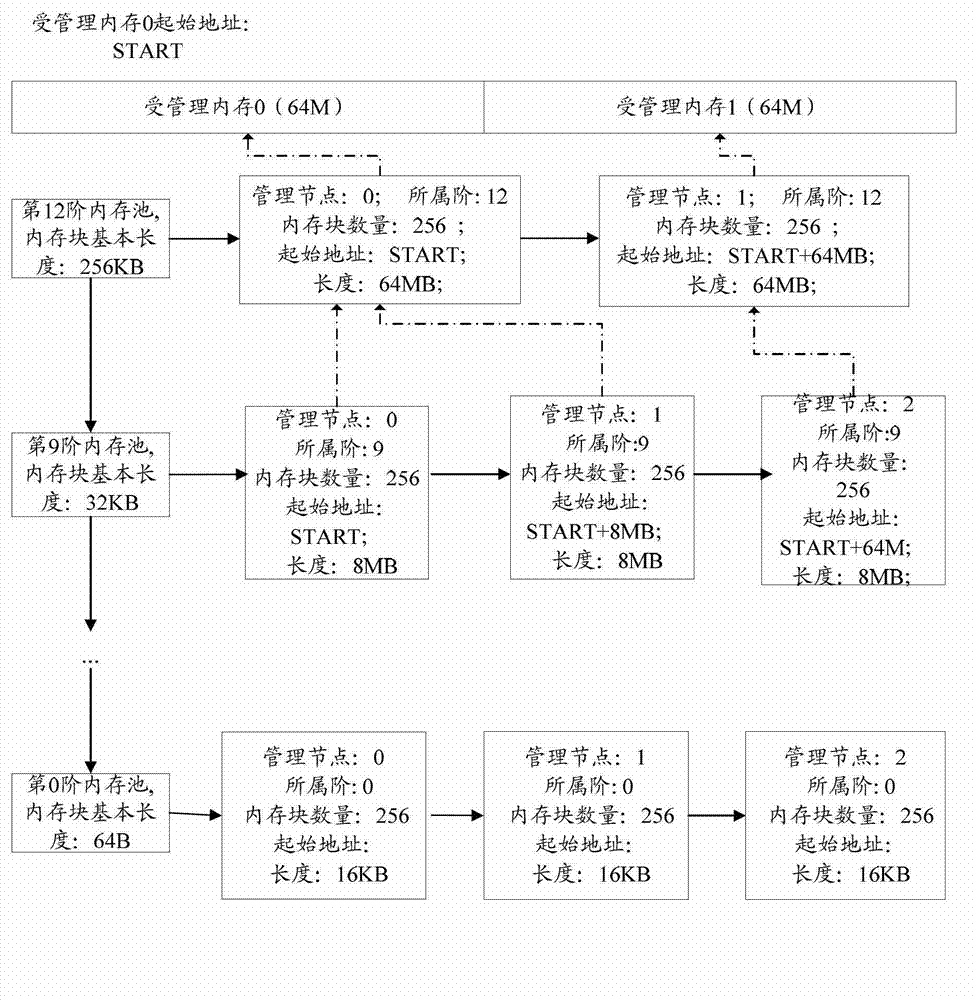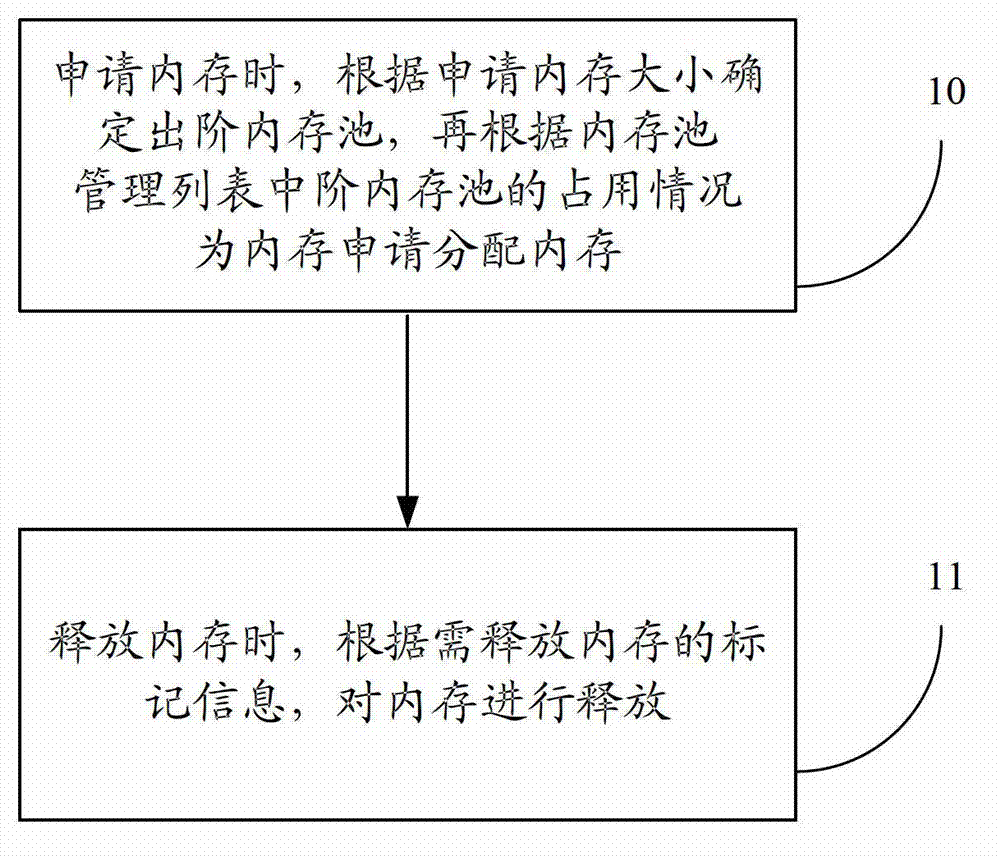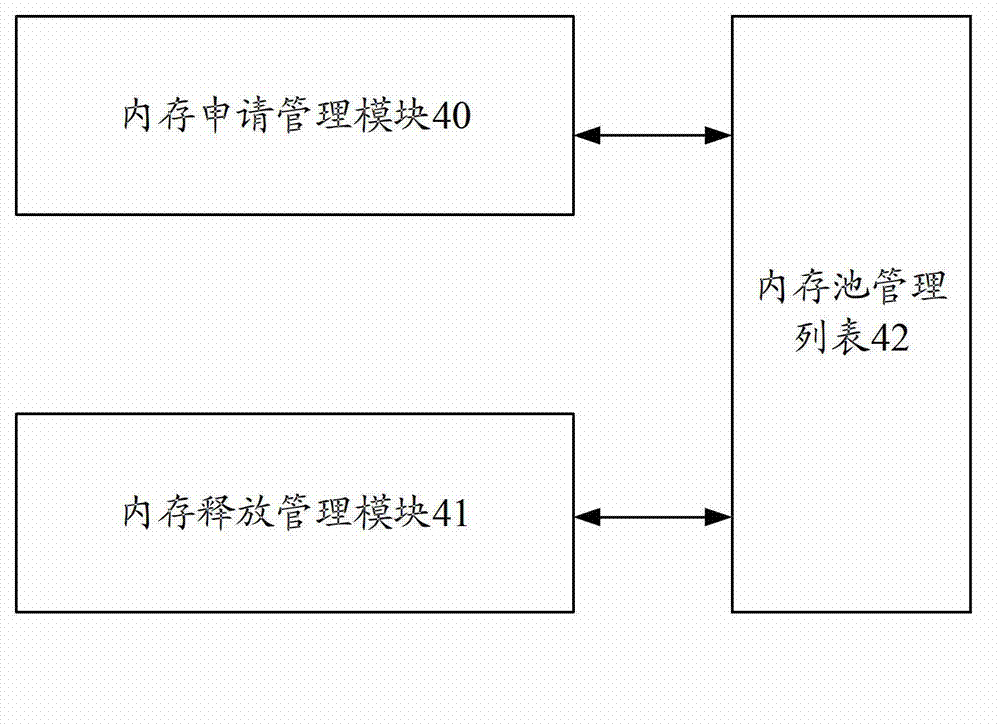Memory management method and device
A memory management and memory technology, applied in the field of memory management, can solve the problems of occupying memory blocks, increasing the operating burden of system resources, and poor flexibility.
- Summary
- Abstract
- Description
- Claims
- Application Information
AI Technical Summary
Problems solved by technology
Method used
Image
Examples
Embodiment Construction
[0067] Before describing the memory management method of the present invention, the memory pool management list of the present invention is described first, such as figure 1 As shown, the highest-order memory pool is the twelfth-order memory pool as an example for illustration. The memory pool management list divides the memory into 0-order (Order) memory pools - 12-order memory pools, a total of 13-order memory pools, Each level of memory pool has at least one management node, and each management node manages 256 memory blocks; in essence, the memory application is at least one of the 256 memory blocks managed by the management node. After the application is successful, the occupied memory A block is called an applied memory block; releasing memory means releasing at least one of the 256 memory blocks managed by the management node. The released memory block is called a free memory block, and the free memory block can be used for the next memory application.
[0068] Here, in...
PUM
 Login to View More
Login to View More Abstract
Description
Claims
Application Information
 Login to View More
Login to View More - R&D
- Intellectual Property
- Life Sciences
- Materials
- Tech Scout
- Unparalleled Data Quality
- Higher Quality Content
- 60% Fewer Hallucinations
Browse by: Latest US Patents, China's latest patents, Technical Efficacy Thesaurus, Application Domain, Technology Topic, Popular Technical Reports.
© 2025 PatSnap. All rights reserved.Legal|Privacy policy|Modern Slavery Act Transparency Statement|Sitemap|About US| Contact US: help@patsnap.com



